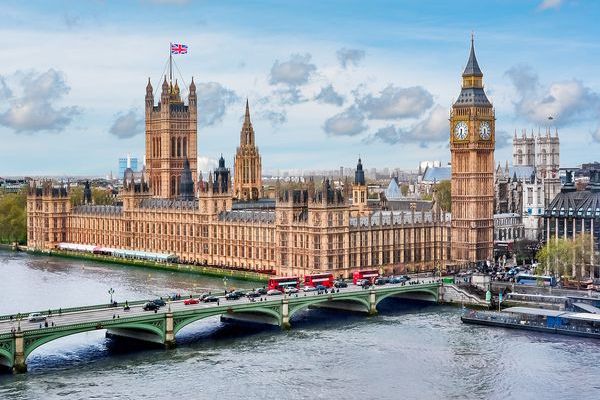techUK's Policy and Public Affairs Programme activities
techUK helps our members understand, engage and influence the development of digital and tech policy in the UK and beyond. We support our members to understand some of the most complex and thorny policy questions that confront our sector. Visit the programme page here.
Tech Policy Conference 2026 I 16 March
Join policymakers and tech leaders at techUK’s Tech Policy Conference 2026 to shape the policies that will define the future of the UK tech sector.
Upcoming events
Latest news and insights
Learn more and get involved
Policy Pulse Newsletter
Sign-up to get the latest tech policy news and how you can get involved in techUK's policy work.
Here are the five reasons to join the Policy and Public Affairs programme
Join techUK groups
techUK members can get involved in our work by joining our groups, and stay up to date with the latest meetings and opportunities in the programme.
Become a techUK member
Our members develop strong networks, build meaningful partnerships and grow their businesses as we all work together to create a thriving environment where industry, government and stakeholders come together to realise the positive outcomes tech can deliver.
Meet the team

Antony Walker
Deputy CEO, techUK

Antony Walker
Deputy CEO, techUK
Antony Walker is deputy CEO of techUK, which he played a lead role in launching in November 2013.
Antony is a member of the senior leadership team and has overall responsibility for techUK’s policy work. Prior to his appointment in July 2012 Antony was chief executive of the Broadband Stakeholder Group (BSG), the UK’s independent advisory group on broadband policy. Antony was closely involved in the development of broadband policy development in the UK since the BSG was established in 2001 and authored several major reports to government. He also led the development of the UK’s world leading Open Internet Code of Practice that addresses the issue of net neutrality in the UK. Prior to setting up the BSG, Antony spent six years working in Brussels for the American Chamber of Commerce following and writing about telecoms issues and as a consultant working on EU social affairs and environmental issues. Antony is a graduate of Aberdeen University and KU Leuven and is also a Policy Fellow Alumni of the Centre for Science and Policy at Cambridge University.
- Email:
- [email protected]
- LinkedIn:
- https://www.linkedin.com/in/antonywalker/

Nimmi Patel
Associate Director for Policy, techUK

Nimmi Patel
Associate Director for Policy, techUK
Nimmi Patel is the Associate Director of Policy at techUK. She works on all things skills, education, and future of work policy, focusing on upskilling and retraining. Nimmi is also an Advisory Board member of the Digital Futures at Work Research Centre (digit). The Centre’s research aims to increase understanding of how digital technologies are changing work and the implications for employers, workers, job seekers, and governments.
Prior to joining the techUK team, she worked for the UK Labour Party and New Zealand Labour Party, and holds an MA in Strategic Communications at King’s College London and BA in Politics, Philosophy and Economics from the University of Manchester. She also took part in the 2024-25 University of Bath Institute for Policy Research Policy Fellowship Programme and is the Education and Skills Policy Co-lead for Labour in Communications.
- Email:
- [email protected]
- Phone:
- 07805744520
- Twitter:
- @nimmiptl
- Website:
- www.techuk.org
- LinkedIn:
- https://www.linkedin.com/in/nimmi-patel1/

Alice Campbell
Head of Public Affairs, techUK

Alice Campbell
Head of Public Affairs, techUK
As Head of Public Affairs, Alice supports techUK’s strategic engagement with Westminster, Whitehall and beyond. She regularly works to engage with ministers, members of the UK’s parliaments and senior civil servants on techUK’s work advocating for the role of technology in the UK’s economy as well as wider society.
Alice joined techUK in 2022. She has experience working at both a political monitoring company, leading on the tech, media and telecoms portfolio there, and also as an account manager in a Westminster-based public affairs agency. She has a degree from the University of Sheffield in Politics and Philosophy.
- Email:
- [email protected]

Edward Emerson
Head of Digital Economy, techUK

Edward Emerson
Head of Digital Economy, techUK
Edward leads the Digital Economy programme at techUK, which includes our work on online safety, fraud, and regulation for growth initiatives.
He has prior experience working for the Department for Digital, Culture, Media and Sport and has previously worked for a number of public affairs consultancies specialising in research and strategy, working with leading clients in the technology and financial services sectors.
- Email:
- [email protected]
- LinkedIn:
- https://www.linkedin.com/in/edward-emerson-009189183

Samiah Anderson
Head of Digital Regulation, techUK

Samiah Anderson
Head of Digital Regulation, techUK
Samiah Anderson is the Head of Digital Regulation at techUK.
With over seven years of Government Affairs expertise, Samiah has built a solid reputation as a tech policy specialist, engaging regularly with UK Government Ministers, senior civil servants and UK Parliamentarians.
Before joining techUK, Samiah led several public affairs functions for international tech firms and coalitions at Burson Global (formerly Hill & Knowlton), delivering CEO-level strategic counsel on political, legislative, and regulatory issues in the UK, EU, US, China, India, and Japan. She is adept at mobilising multinational companies and industry associations, focusing on cross-cutting digital regulatory issues such as competition, artificial intelligence, and more.
She holds a BA (Hons) in Politics, Philosophy, and Economics from the University of London, where she founded the New School Economics Society, the Goldsmiths University chapter of Rethinking Economics.
- Email:
- [email protected]
- Website:
- www.techuk.org
- LinkedIn:
- https://www.linkedin.com/in/samiahnanderson/

Jake Wall
Policy Manager, Skills and Future of Work, techUK

Jake Wall
Policy Manager, Skills and Future of Work, techUK
Jake has been the Policy Manager for Skills and Future of Work since May 2022, supporting techUK's work to empower the UK to skill, attract and retain the brightest global talent, and prepare for the digital transformations of the future workplace.
Previously, Jake was the Programme Assistant for Policy. He joined techUK in March 2019 and has also worked across the EU Exit, International Trade, and Cloud, Data Analytics and AI programmes.
He also holds an MA in International Relations from the University of Sussex, as well as a BA(Hons) in International Politics from Aberystwyth University. During his time at Aberystwyth University, he won the International Politics Dissertation Prize.
- Email:
- [email protected]
- Twitter:
- @jww_tech,@jww_tech,@jww_tech
- Website:
- www.techuk.org,https://www.techuk.org
- LinkedIn:
- https://www.linkedin.com/in/jwwuk,https://www.linkedin.com/in/jwwuk

Archie Breare
Policy Manager - Skills & Digital Economy, techUK

Archie Breare
Policy Manager - Skills & Digital Economy, techUK
Archie Breare joined techUK in September 2022 as the Telecoms Programme intern, and moved into the Policy and Public Affairs team in February 2023.
Before starting at techUK, Archie was a student at the University of Cambridge, completing an undergraduate degree in History and a master's degree in Modern British History.
In his spare time, he likes to read, discuss current affairs, and to try and persuade himself to cycle more.
- Email:
- [email protected]
- LinkedIn:
- linkedin.com/in/archie-breare-512346230

Daniella Bennett Remington
Policy Manager - Digital Regulation, techUK

Daniella Bennett Remington
Policy Manager - Digital Regulation, techUK
Dani joined techUK in February 2025 as a Policy Manager in the Digital Regulation team.
Prior to this, Dani worked in political monitoring where she was a consultant for Digital, Culture, Media and Sport. In this role, she developed a strong understanding of parliamentary procedure, closely following all of the major developments in the tech centre and working with several key stakeholders and regulators.
She has an undergraduate degree in History from the University of Bristol and an MPhil in Modern European History from the University of Cambridge.
Outside of tech, Dani has a strong interest in addiction policy, particularly towards drugs, having written her dissertation on the topic as well as several subsequent research projects. In her spare time, she enjoys cooking and following all things motoring, whether that be F1, MotoGP or Formula E.
- Email:
- [email protected]
- Twitter:
- @danibenrem
- LinkedIn:
- https://www.linkedin.com/in/daniella-bennett-remington/

Oliver Alderson
Junior Policy Manager, techUK

Oliver Alderson
Junior Policy Manager, techUK
Oliver is a Junior Policy Manager at techUK, working across Public Affairs and Digital Regulation policy. He supports the organisation’s engagement with government and parliament, contributes to shaping techUK’s regulatory agenda, and plays a key role in coordinating political outreach, policy projects, and flagship events.
He joined techUK in November 2023 as a Team Assistant to the Policy and Public Affairs team, before stepping into his current role. He has been closely involved in efforts to ensure the tech sector’s voice is heard in the policymaking process.
Oliver holds a Master’s in Policy Research from the University of Bristol and a BSc in Policy from Swansea University. During his studies, he contributed to mental health research as a Student Research Assistant for the SMaRteN network.
Outside of work, Oliver is a keen debater and remains active in the UK debating community, having previously led the Swansea University Debating Union. He enjoys exploring complex issues from multiple perspectives and values clear, thoughtful communication in policy discussions.
- Email:
- [email protected]
- Phone:
- 07505 890 596
- LinkedIn:
- https://uk.linkedin.com/in/oliver-alderson-a51312180
Tess Newton
Team Assistant, Policy and Public Affairs, techUK
Tess Newton
Team Assistant, Policy and Public Affairs, techUK
Tess joined techUK as an Policy and Public Affairs Team Assistant in November of 2024. In this role, she supports areas such as administration, member communications and media content.
Before joining the Team, she gained experience working as an Intern in both campaign support for MPs and Councilors during the 2024 Local and General Election, and working for the Casimir Pulaski Foundation on defence and international secuirty. She has worked for multiple charities, on issues such as the climate crisis, educational inequality and Violence Against Women and Girls (VAWG). In 2023, Tess obtained her Bachelors of Arts in Politics and International Relations from the University of Nottingham.
- Email:
- [email protected]
- LinkedIn:
- https://www.linkedin.com/in/tess-newton-8ab444239/










